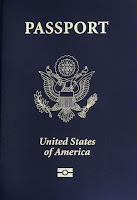 There's now a new requirement in Czechland for foreigners who have been issued long-term residence permits, since 1 January 2021, to complete a four-hour integration course.
There's now a new requirement in Czechland for foreigners who have been issued long-term residence permits, since 1 January 2021, to complete a four-hour integration course.
The course covers the rights and obligations that come with residency here as well as Czech culture and values. The class is conducted in Czech, with interpretation into English, French, Spanish, Arabic, Mongolian, Russian, Serbian, Ukrainian or Vietnamese. There's no exam but participants receive a certificate when they complete the entire course. It costs 1500 Kč ($70) and is available at 18 centres across the country. You have up to one year from receiving your residency permit to complete the course. The fine for not completing it in time is up to 10.000 Kč ($467).
This is only for third-country nationals as EU citizens are exempt. It's not required if you are under 15 or over 61 years of age. Those here on study or investment visas are also exempt.
Aside from this, the education minister has submitted draft legislation that will increase the Czech language requirement for permanent residency from A1 to A2. When I received my permanent residency back in 2015 I only had to prove A1 level Czech. This isn't official yet but I think it's for sure coming as there's been talk of raising the level of Czech required for at least the past eight years. I don't know if they will raise it this year with COVID-19 but for sure by next year.
 I was surprised to find out that Czechland and France are the only two EU countries that only require A1 for permanent residency. I would have thought that the level of language proficiency would have been more unified across Europe but each has its own requirements.
I was surprised to find out that Czechland and France are the only two EU countries that only require A1 for permanent residency. I would have thought that the level of language proficiency would have been more unified across Europe but each has its own requirements.
In Czechland, A2 will be required for permanent residency while B1 is required for citizenship.
Germany requires B1 level for either permanent residency or citizenship.
Austria requires B1 for permanent residency and B2 for citizenship. This means that for Austrian citizenship you need to speak better German than a German citizen. Albeit Austrian German.
France requires A1 for permanent residency and B1 for citizenship.
Poland requires B1 for both permanent residency and citizenship.
I don't know about permanent residency but Italy requires B1 for citizenship. The Netherlands, Portugal, and Spain only require A2 for citizenship in Dutch, Portuguese, or Spanish respectively. Denmark requires B2 for citizenship.
For countries with multiple official langues the rules seem to vary more. For citizenship in Finland, B1 is required but it can be in either Finnish or Swedish since both are official languages.
Belgium has three official languages so for citizenship you only have to prove A2 in either French, Dutch, or German.
Luxembourg has three official languages - French, German, and Luxembourgish. But if you want citizenship than only Luxembourgish counts. You need A2 level speaking and B1 level listening.
Switzerland has four official languages - German, French, Italian, and Romansh. For permanent residency you need A1 writing and A2 speaking in any one of the four languages. For citizenship, A2 writing and B1 speaking are required.
I'm still waiting to find out when I get to take my B1 Czech exam.

























































